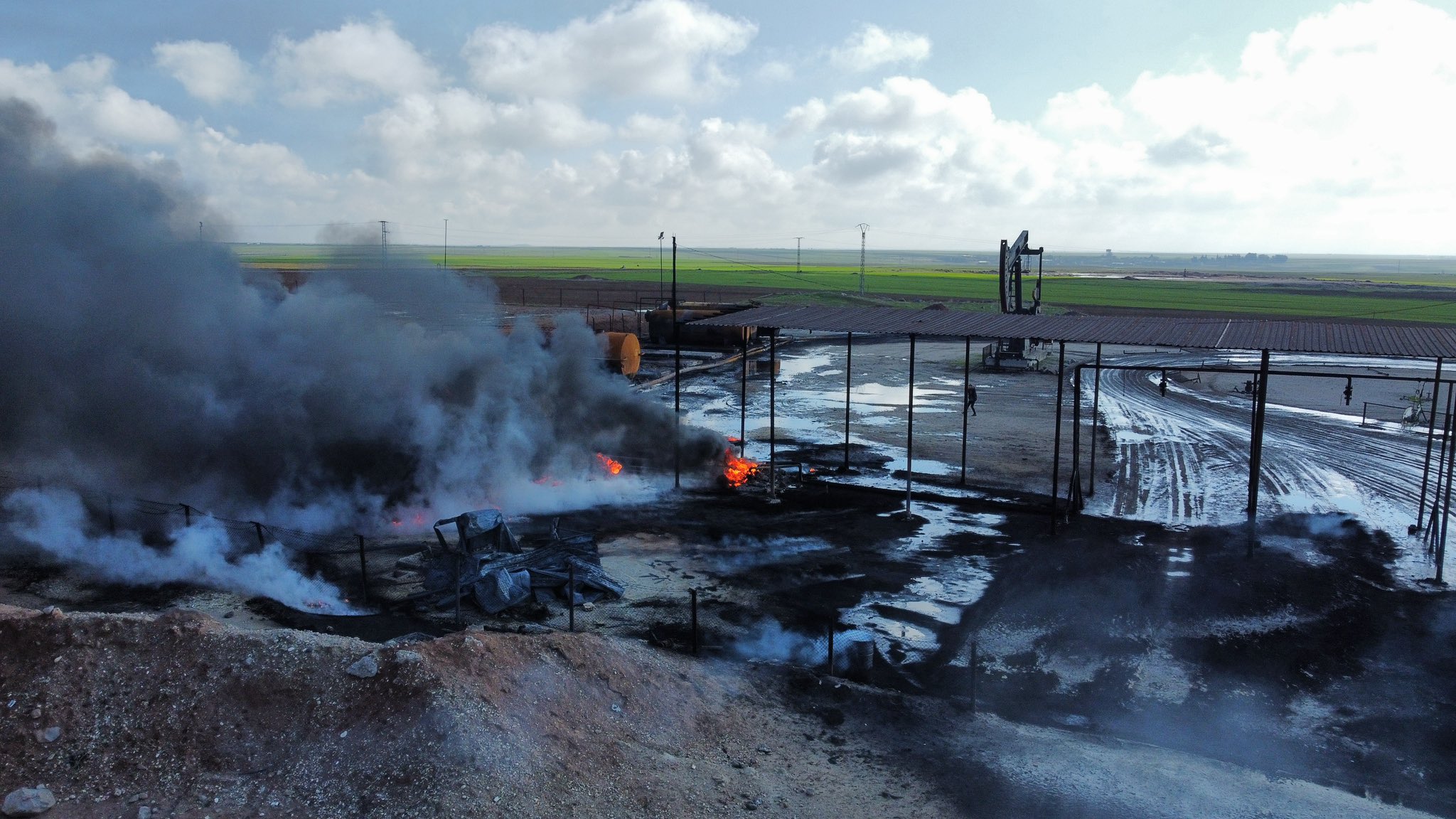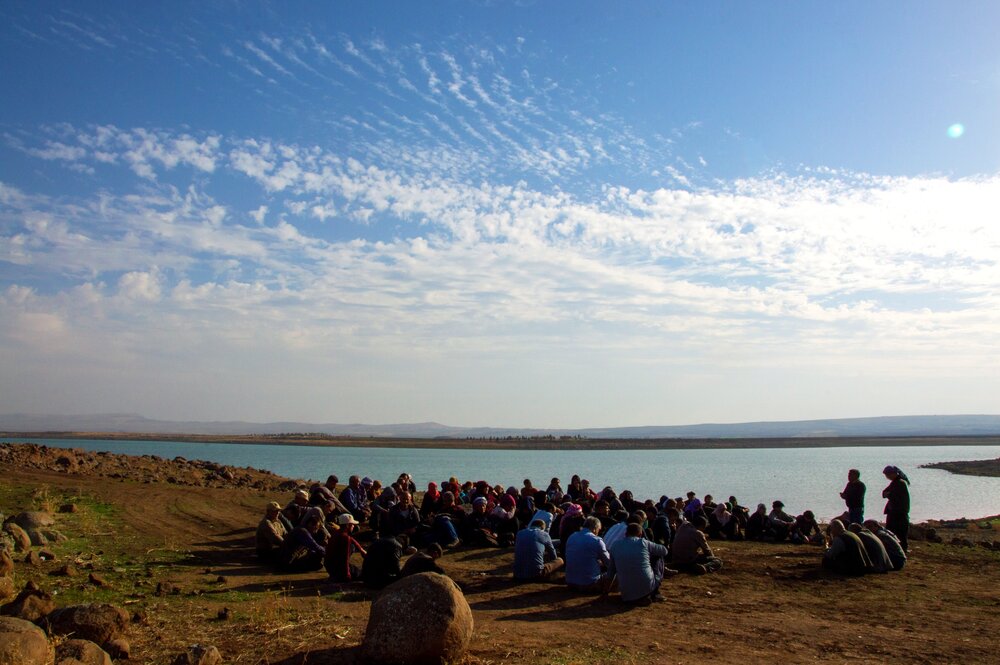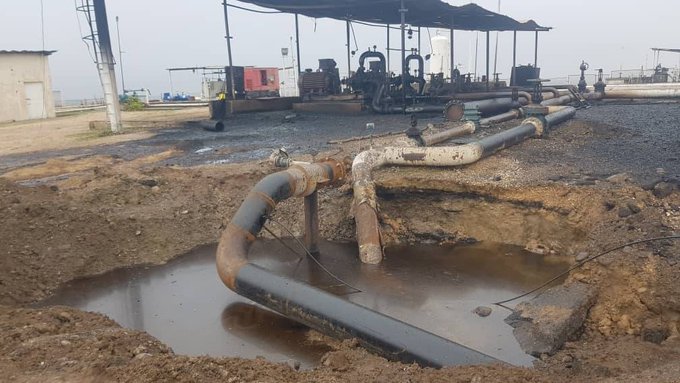Editor’s Note: The Kurdish people of Rojava have been building a grassroots democracy based around self-organizing communes, valuing relationships with nature and women’s liberation. To a large extent, these communes aim for what we believe the world should be: localized food systems, ecological living, and non-hierarchical societal structures. However, they face many challenges from neighboring states. We have covered this previously in many of our posts and podcasts. The following is a part of the report by Make Rojava Green Again. You can find the full report here.
For more on the communes of Rojava, please watch this video:
“We Will Defend This Life, We Will Resist on This Land”: Building Social-Ecology under Attacks in Rojava
The revolutionary process in Rojava, based on the pillars of grassroots democracy, women’s liberation and social-ecology, is progressing while at the same time is threaten by the continuous war carried on by the Turkish state. The Turkish army is not responsible only for killing civilians and political representatives but for a planned ecocide and attacks on basic civil infrastructure.
Rojava is one of the four parts in which Kurdistan has been divided with the creation of nation states of Turkey, Iran, Iraq and Syria. Rojava is the Syrian part.
The history of the Kurdistan, the ecological way of life of the people, the effects of the attacks, and the methods of resistance, are intrinsically related. In order to make them more understandable, we focused on the area of Koçerata. This region, its people and civil infrastructures in particular, were heavily targeted by Turkish airstrikes in winter 2023-2024.
Ecocide is a warfare of the Turkish fascism against the people. Long-term effects continue to harden the life of the people and will do so for the time to come. Still the people as well as the autonomous administration are focusing on finding creative and collective methods.
The creation of a new life on the basis of old heritages
Koçerata, the “Land of the Nomads”, is a plain land with some hills and, due to the Tigris’ river, very fertile. For hundreds of years Kurdish nomads have moved in the region, until the construction of nation states borders. Not being willing to give up on their ancestors’ way of life too fast, a lot of the people continued to move in the plain until around 1945, when Syrian state was built up. Syria wanted to create an urbanized, industrialized society. In this framework intensive monoculture practices were imposed. Koçerata in particular became of high interest because of the rich oil deposits, and until now represent one of the main pillars of energy suppliance for the region. One of the biggest power plants of North-East-Syria is also based here, in Siwedî. It was built in 1983 by a French company, and was the main gas and power station of whole North-East-Syria, serving between 4 and 5 million people, until the winter attacks.
Rûken Şêxo, spokesperson of the peoples council in the village Girê Sor describes the life of the people and the creation of social-ecology in the region: “The life of the Koçer [kurd. Half-nomads] is very simple and beautiful. We don’t need a lot from the outside. In every house you will find a small garden, where the families are growing vegetables, herbs and plants, for example tomatoes, onion, salad. Some will also raise cows, chicken and turkeys”. “We make things ourselves, especially yogurt, cheese and milk. From our childhood onward we learned to create everything by ourselves, from the things we have. This is also what we are going to teach to our children.”
Today the people of Koçerata are living mostly in villages, organizing their life as a part of the self-administration of North-East Syria. Still carrying on cultural heritage, the life is rather humble and self-contained. A life close to nature and communality has passed on through generations. People of Koçerata mostly rely on agriculture and also shepherding still plays a role.
While the communes are the foundation of the organizing of the everyday life on the village level, the peoples council are solving regional problems. The communes are the cells of the society and the councils are its body. Both of them elect two co-chairs, a woman and a man to apply decisions. At the same time, the Municipalities, which are responsible to organize infrastructural needs in the region, such as water and electricity supplies are under the control of the Peoples Council. The level of organization in the region is very strong, based on the long-time ties between the people and the freedom movement, as well as the lively communal culture. Connecting heritage and local culture with grassroots democracy and popular self-defense, the people of the region of Koçerata have set strong foundations for developing social-ecology.
Turkey’s war against Rojava: An attack on the development of social-ecology
Even though, in November 2022, heavy attacks were executed, targeting in particular the infrastructure for basic life needs (water and electricity), the most recent bombardments, from October 6th 2023 to January 18th 2024, mark the worst escalation since 2019. In this period the Turkish army carried on more than 650 strikes (with drones and fighting jet), hitting more than 250 places, many of them being hit several times. In this huge operation, 56 people have been killed (among which two children, 10-11 years old), while at least 75 people have been injured. Among them, workers at their work site or collecting cotton in fields. The airstrikes have mainly targeted essential infrastructure, 18 water stations, 17 electricity plant, sites for cooking gas, and oil, but also schools, hospitals, factories, industrial sites, agricultural and food production facilities, storage centers for oil, grain and construction materials and medical facilities, villages.
The purpose of destroying the basis of people’s life became even more explicit and clear. Beside the physical destruction, these attacks aim to harm society’s psychological status and destabilize the region, in order to stop the democratic process that is going on within the Autonomous Administration.
One of the most critical infrastructural targets have been the electricity plant of Siwedî. “Being the main gas and power station of whole North-East Syria, when there is problems within the plant it effects the whole region” told us Rûken Şexo, spokesperson of Girê Sor village. “After that shelling almost 4 to 5 million people have been affected”, and, in Cizîrê region, where 50% of the regular electricity comes from this plant, two million residents have been left without municipal services, electricity, power, and water.
Due to the cut of water from Turkey, the water situation was already very heavy. The rivers flow that was allowed to cross into Rojava decreased severely obviously affecting all aspects of life, drinking, hygiene and health, agriculture and food production, animal’s life, economy, education and gender dynamics. In addition, the Turkish state has also altered the water quality, releasing contaminant sewage residues in the few water still flowing into North-East Syria.
“The shellings are hurting the people of Koçerata, in all aspects of life” told us Xoşnav Hesen from the village of Girê Kendal. “These are from the attacks” he said, while showing us the deep cracks on the walls of his house. Without electricity the water pumps that secure the water supplying from the ground can’t work, the water can’t be extracted from the wells and distribute to the villages. While this is in general a fundamental problem for human’s life, in the region it is even more crucial due to the agriculture-based life of the people.
“Most of the people live from the products of the earth and the animals that they raise themselves.” told us Rûken Şexo, spokesperson of Girê Sor village. “Without water, the plants are dying and the animals can not drink. The cultures are affected, the animal’s life is affected. The base of people’s economy, of families’ economy in the region is based on this. Now the families are having economic problems, because they used a lot of money to plant and now everything is gone, the animals are dying because of lack of water”. These military operations aim to create fear and frustration. “Creating, building up, is not a problem, the problem is war. You work so much, create so much, invest so many resources, and then, in one second it gets destroyed” said Delal Şêxo from the village of Hamza Beg.
“We don’t leave our land, we organize ourselves” – Resistance of the people on their land
The current attacks led by the Turkish State must be understood in the broader context of war and ecology. The Autonomous Administration of North-East Syria encourages the establishment of cooperatives, agro-ecology, like the production of organic fertilizers, and eco-industries based on the cooperative system and on a circular approach to production and consumption. Plans regarding the use of different source of energy (solar, biogas from animal manure and organic wastes or wind energy), recovery of soil and groundwater characteristics, are made. However, these could not develop on a large scale due to the systematic destruction of basic infrastructure. This attacks forced the administration and the whole economy of North-East Syria to devote themselves toward continuous works of reparation and rebuilding, in order to reply to emergency and immediate consequences of war. The embargo also represents another significant obstacle to the development of ecological projects.
In spite of all these hardships attempts are made to foster the ability of people to organize their own forces. Despite external factors such as embargo and war creating obstacles for the progress of social-ecology, the strength of the social network resists the enemy’s attempts at displacement and psychological warfare.
People are showing a strong solidarity, the determination to stay on the lands and the population has develop its ways to withstand collectively the hardships. The municipality visits the different Communes to inform them, share evaluations about the situation, listen to their needs, try to find solution together, and to organize collectively the whole society, make every one taking responsibility for it. The people of Koçerata pull their resources in times of difficulty. Neighbors share generators and water pumps during electricity shortages, or collect funds for the installation of local generators. Some villages deliberately limit their electricity for hours to support others. Certain families combine financial resources to afford a communal water pump system independent from electricity. During the airstrikes in late December, the Koçerata community mobilized to create human shield to protect the Siwedî power plant. While the priority is to set up an emergency plan, for their long-term strategy towards social-ecology the force of solution is already here: initiative from the base, self-organization, and decentralization.
The ecological crisis and the increase of global conflicts, often for the sake of natural resources and their exploitations, are showing every day more how solutions cannot be found neither in State politics or in technology alone. Especially in times and areas of conflict, the social-ecological problems tend to be seen as second rank of importance. Opposite to this approach, the attempts made by the autonomous administration emphasize how, even in times of attacks, social-ecology can represent an answer for both the problems. As we witness, against wars and environmental destruction, social-ecological models, self-sustainability and decentralization can really constitute a solution for a lasting peace in the region. In this framework, the reality of Koçerata must be known as a meaningful and inspiring example of resistance. This is not just an example of theory but it is, in first place, an example of practice of resistance and self-organization. Against the current centralized, urbanized and mono-culture global system, based on exploiting human-land relationships, Koçerata can suggest sustainable ways of living, working and producing. This region is at the same time unique, for its history and specificity, but not alone. Every place, every community can recover its democratic heritage, and, on this basis, build strong communities and a life in harmony with nature. Values of resistance, connection with the land, communality and freedom are not limited to one geography but parts of our life, of our being part of humanity, being part of Nature. Telling about Koçerata also creates connection with many other struggles, carried on by people around the world to defend the land and build a democratic life. Understanding that the resistance in one place, however important, cannot be really successful alone. Local solutions and global changes, toward a social-ecological model, are both needed. The example of Koçerata wants to be a source of strength, hope and inspiration to think also about how we can resist and defend our territories, how we can build alliances with struggles in other geographies, communities and free life.


